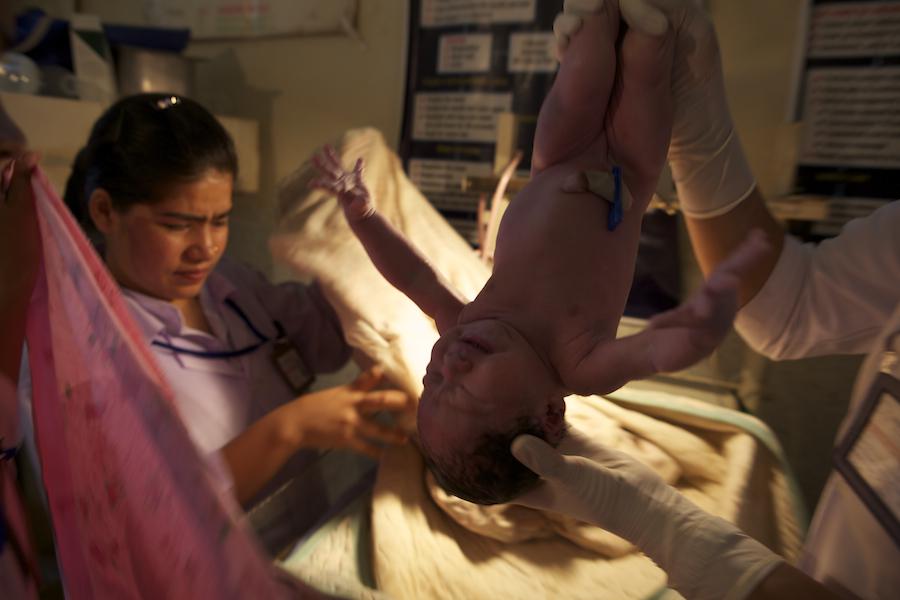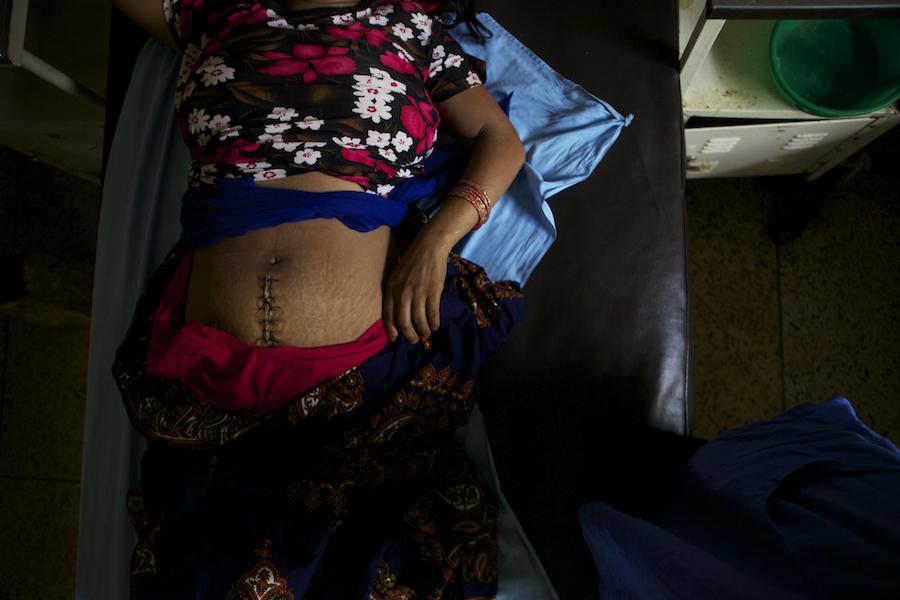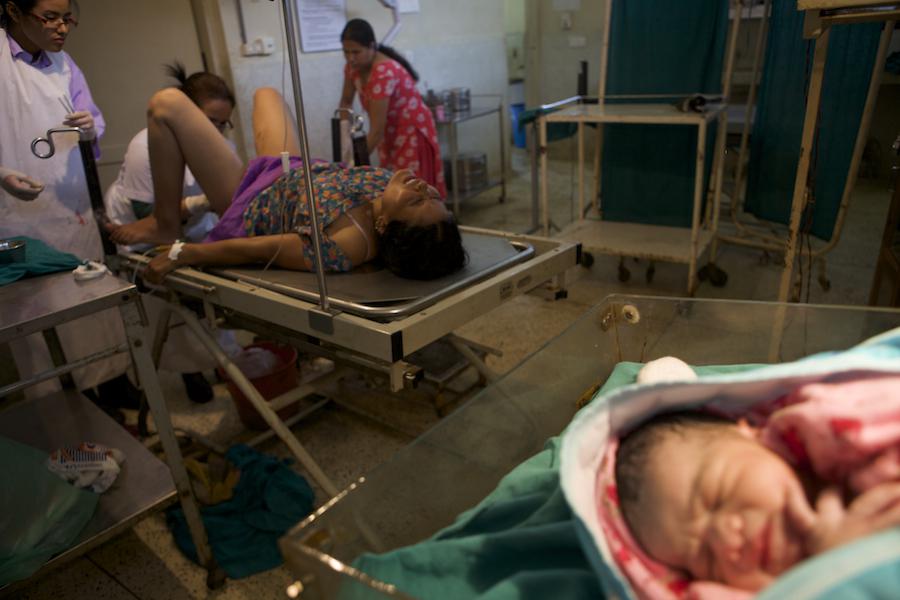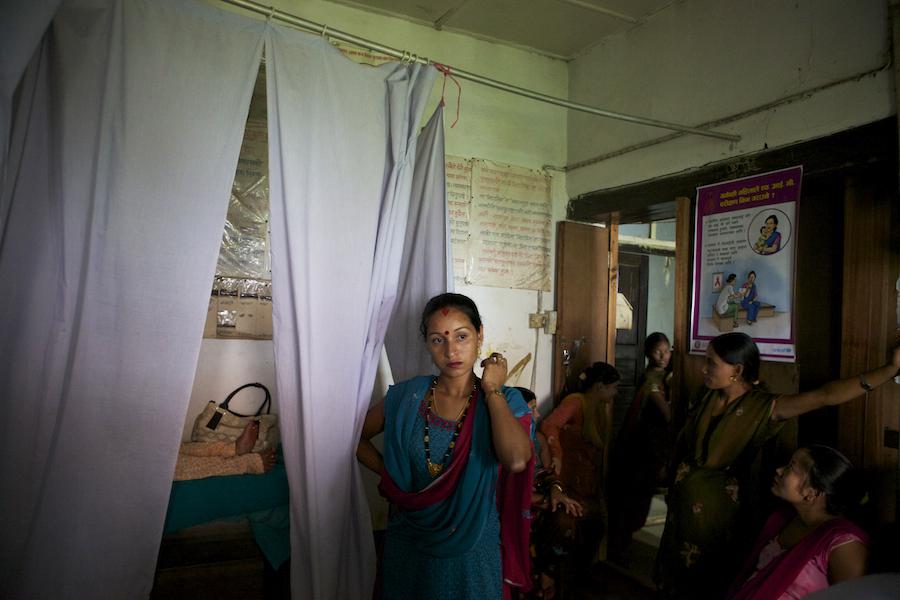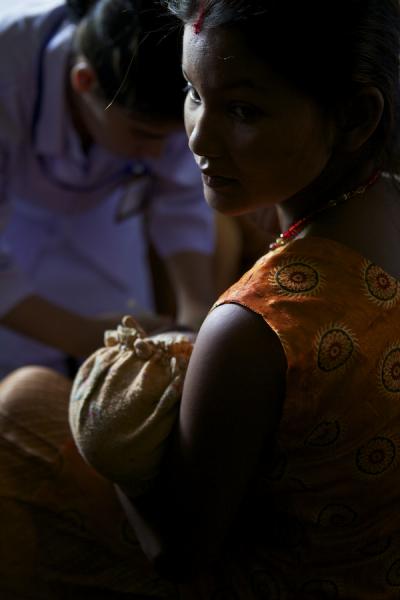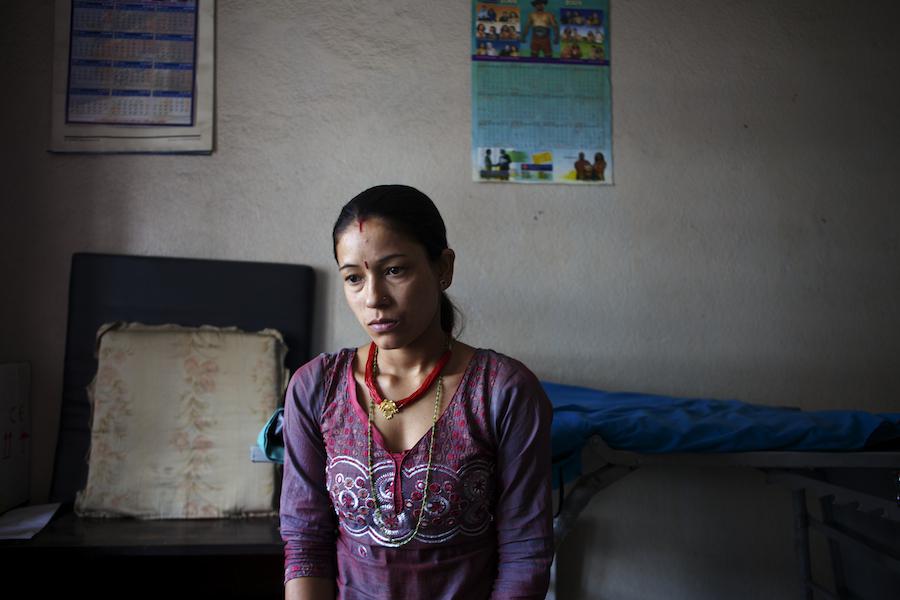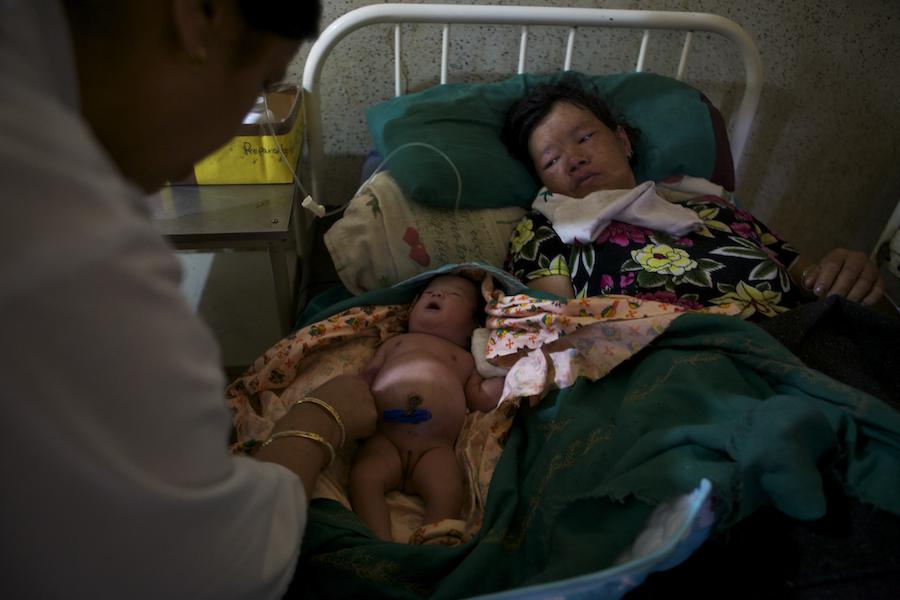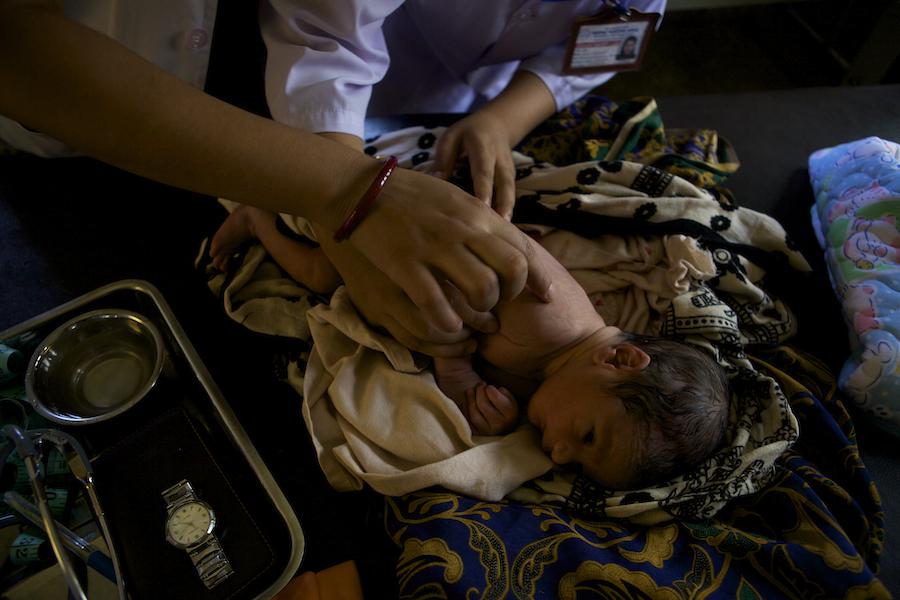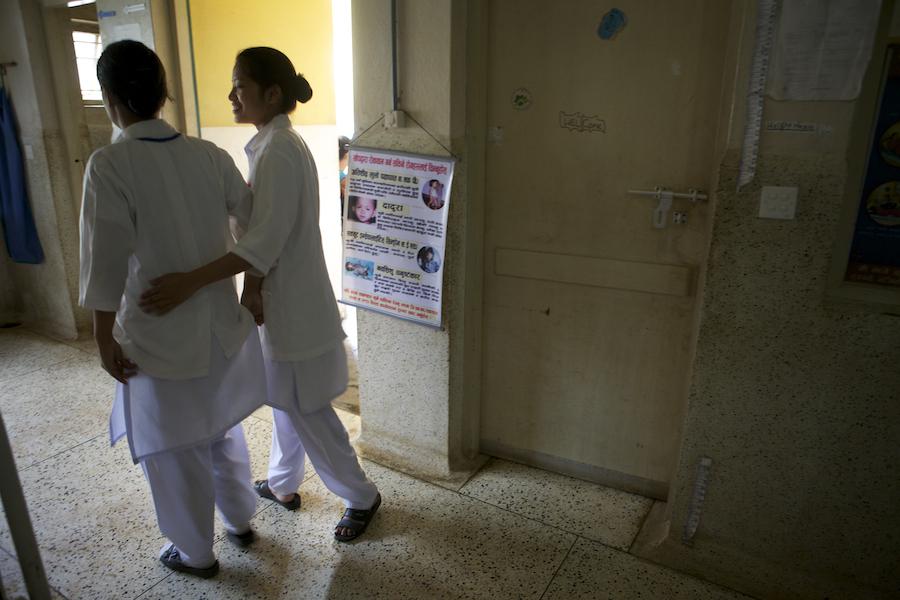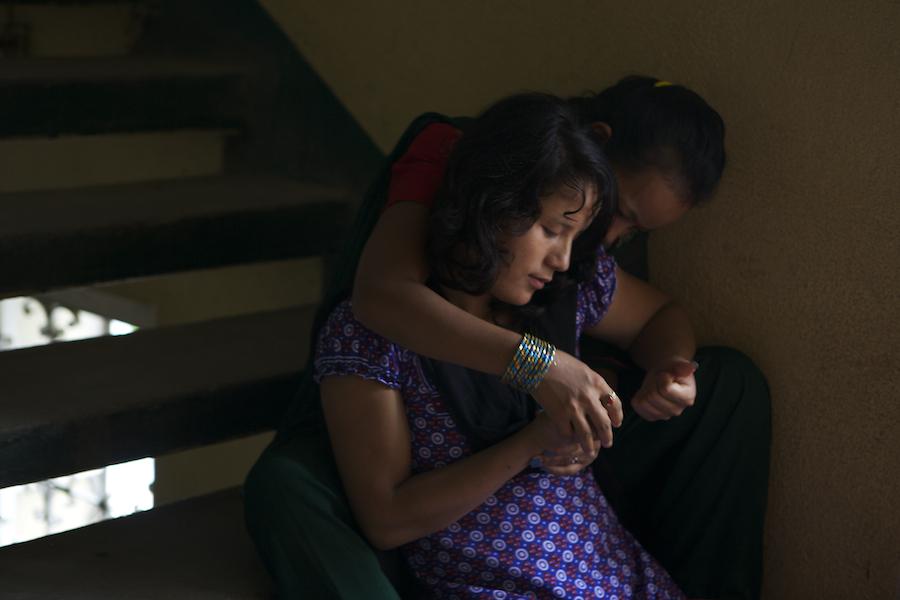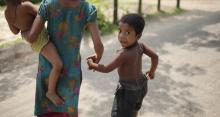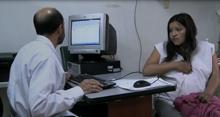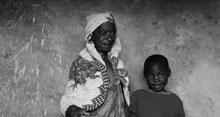Welcome Labour Room
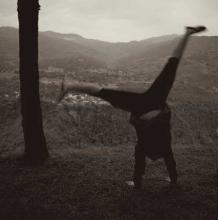
As you pass by the permanent marker sign “Welcome Labour Room” on the metal door to the “waiting room,” the pungent smell of antiseptic wash hits your nose as you take in the small, crowded setting. This is the Baglung District Hospital Maternity Ward in the town of Baglung in Western Nepal. The hospital provides the only Maternity Ward services in the district and has the only operating theater, serving over 500,000 people. Maternal Health remains a pressing issue in rural Nepal, where women face many dangers when bringing life into this world.
As the women gathered from all over the district, the staff worked quickly to check on the young lives growing inside them. This is likely the only medical attention these women will receive during their pregnancy, and the nurses fill their short exchange with the women with as much information as possible, covering topics ranging from what food they need to be eating to advising them to avoid lifting heavy materials to informing them of possible complications.
It may seem simple, but in rural Nepal this short exchange can mean the difference between life and death. According to the 2009 Maternal Mortality and Morbidity study, more than ten percent of the deaths of females of reproductive age were due to maternal causes. In many cases this is because women are unable to access even basic care on time: according to the same study, 40% of deaths occurred at home and 14% in transit to the facility where these deaths were recorded.
Twelve hours away in the capital city of Kathmandu, motherhood still does not come easily. Poverty, lack of facilities, and lack of education leave women weakened and at risk during pregnancy. The Kalimanti clinic provides low cost health care to try to alleviate the overwhelmed city hospitals.
Kelly McIlvenny is a young and aspiring Australian documentary photographer, who believes in the power of a still image to capture a moment that grasps at what it means to be human, what it means to have family, what it means to love, what it means to struggle, and what it means to be kind. As a photographer she aspires to connect individuals through the art of visual story telling. She is based on the Gold Coast in Australia, where she has recently completed a Bachelor of Digital Media with Honours at Griffith University. She hopes to continue her studies while working on projects regarding social issues worldwide. To find out more about the photographer and her latest projects please visit www.kellymcilvenny.com.
Related Content
|
This photo essay shows the mothers and children of Bangladesh, where extreme poverty reigns but maternal health has improved in recent years. |
Samina Ali tells about her medically dangerous labor and delivery, during which she almost died, and what she learned from her infant son during her long period of rehabilitation. |
A woman in Colombia gives birth in this short film, which also illuminates the problems related to limited medical resources for women. |
Sasja van Vechgel, alongside the Foxes NGO, photographed mothers, children, and families affected by the HIV/AIDS endemic in Tanzania. |
